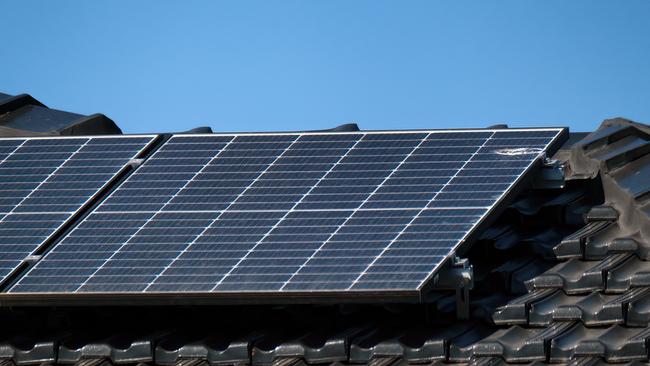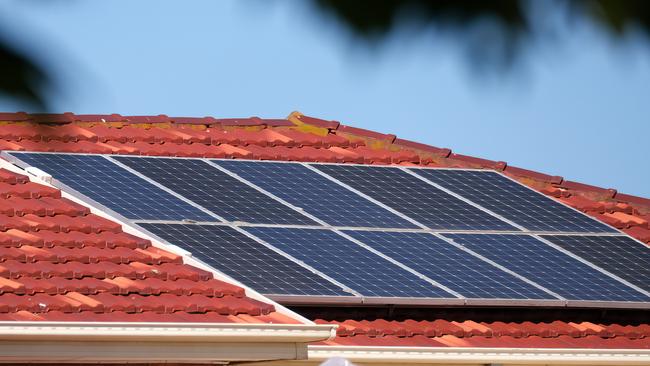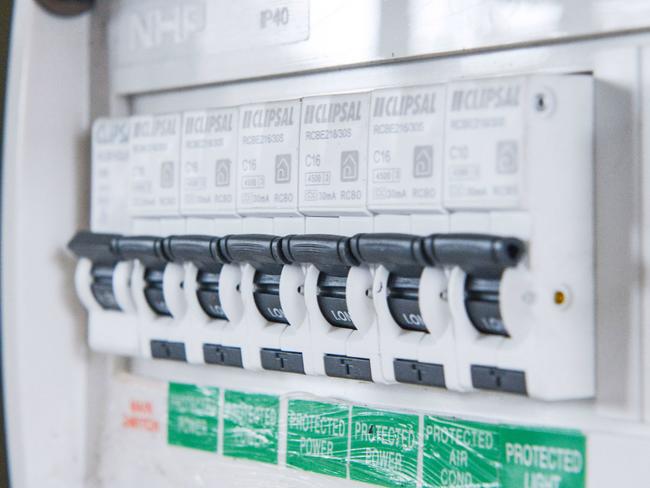Experts reveal how to save thousands on your electricity bills
Soaring electricity prices are just another added pressure to Aussies’ hip pockets, but there is one thing you can do to reduce your costs.
Sustainability
Don't miss out on the headlines from Sustainability. Followed categories will be added to My News.
The cost of converting to solar energy in Australia has become more achievable in the past decade thanks to various rebates and incentives – but the federal subsidy will be reduced at the end of the year.
With electricity prices soaring, heaping further cost of living pressures on families, many people have been left wondering whether it is a good time to invest in solar.
Smart Energy’s Liam Navon says people who ordinarily might not be able to afford to have been inspired to consider the switch thanks to initiatives such as the small-scale renewable energy scheme.
“It has given Australians an incentive to turn to solar energy, saving them thousands of dollars,” he said.
“However, Aussies will see the scheme reduced by several hundreds of dollars by the end of the year.
“With the current pressures to the cost of living, and the expected 50 per cent increase in energy bills, there really is no better time to take advantage of this scheme than now.”

The scheme creates a financial incentive for people and small businesses to install renewable energy systems by helping cover the upfront cost of installation.
Eligible systems may be entitled to small-scale technology certificates, which can be sold to recoup a portion of the cost.
These include solar photovoltaic panels, wind turbines, hydro systems, solar water heaters and air source heat pumps.
Mr Navon said Australia was moving towards renewable energy, so delaying the decision to get solar could mean it costs more in the long run.
Last month, comparison website Finder surveyed more than 1000 people and found 15 per cent were contemplating installing solar panels.
About 31 per cent were unable to do so because they did not own their home.
A further 11 per cent said they believed solar panels were too expensive, while six per cent were already considering it.

Finder energy expert Mariam Gabaji said households needed their bills to be consistent so they could budget and manage their money properly.
“The volatility in energy prices means there are now families struggling to put food on the table,” she said.
“The average debt of customers on hardship programs is around 30 to 40 per cent higher as at June 2022, compared to pre-pandemic levels.”
The average household spends $364 per quarter on electricity, which is equivalent to $1456 per year.
Finder’s Green Consumer Report found households could save an average of $732 per year by installing solar panels.
Ms Gabaji said while there was an upfront cost, solar panels were financially smart in the long-term.
“There are government schemes … in Victoria, you can receive a rebate of up to $1400 for installing a solar system,” she said.
“If your solar system generates more energy than you consume, you can effectively sell this excess electricity back to the grid to earn a profit.
“There are also companies offering repayment plans to help you stagger the cost of your solar installation in case you’re not eligible for a rebate or concession.”

Meanwhile, it was revealed on Friday the Commonwealth would impose price controls on coal and gas, and give $1.5bn to all jurisdictions to spend on power bill rebates.
Prime Minister Anthony Albanese announced the emergency energy policy from Kirribilli House – where he is isolating with Covid-19 – shortly after his virtual national cabinet meeting.
Federal parliament will be recalled next week to deal with the necessary legislation.
The Prime Minister has ruled out “cash handouts”, saying Treasury had advised it would risk further fuelling inflation.
Treasurers in each jurisdiction will instead decide how to use their share of the $1.5bn to reduce energy bills for households and small businesses.
It is expected to result in government rebates for power retailers to help them lower the bills they send out.
In the October budget, Treasury forecast a 56 per cent rise in electricity prices and a 44 per cent increase in gas prices.
Originally published as Experts reveal how to save thousands on your electricity bills



